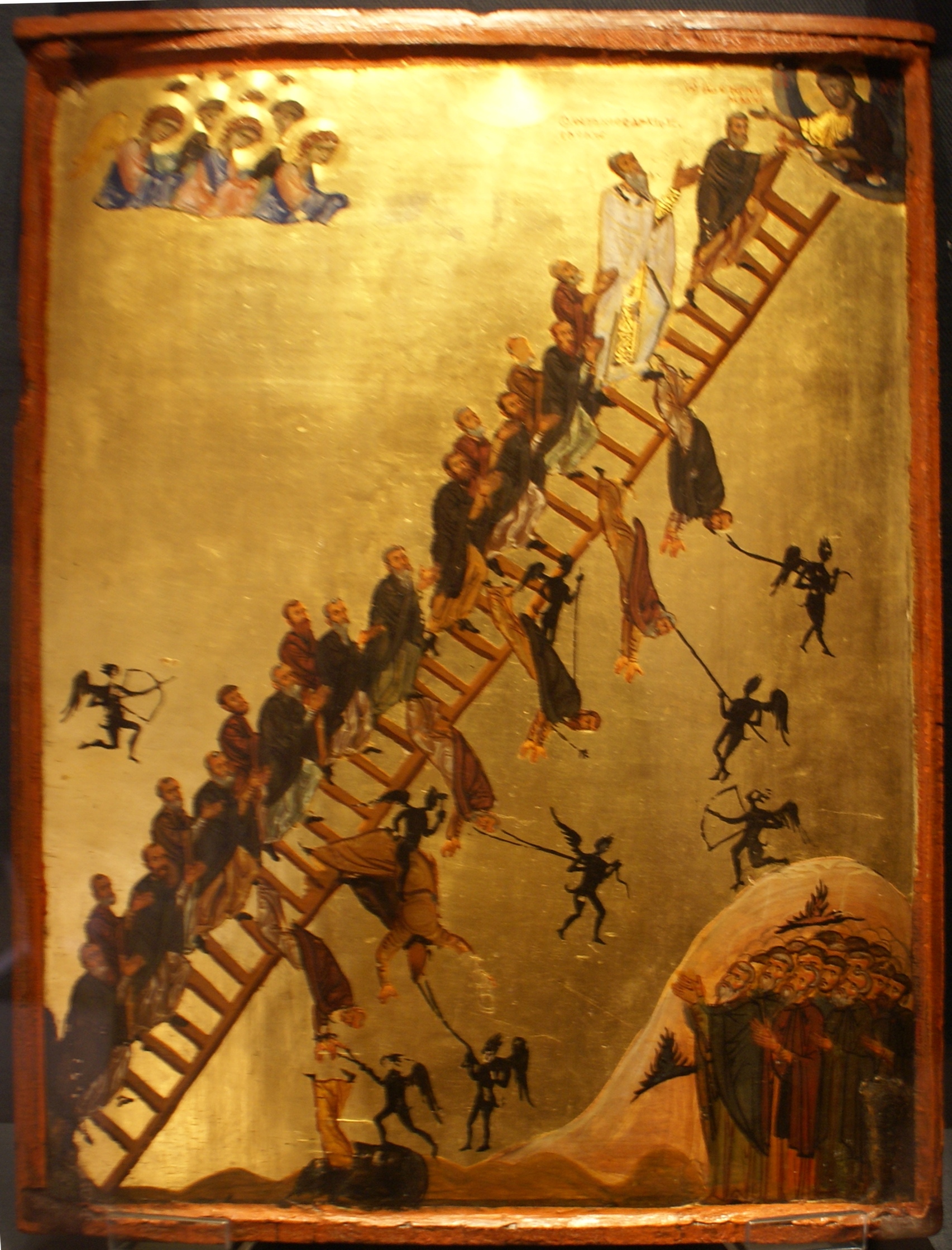There are a few emphasises in Byzantine theology that make it unique to Christianity, but the thing that truly sets it apart is the theology of theosis ("THAY-o-sis"). It's a theology that is all about becoming in action or, as one of the Church Fathers says: "God became man so man could become God". It's all based off of a NT passage that talks about putting on the "nature" of God. My dad asked "what's nature mean? We don't become God, do we?".
So we employed some Google and looked up an interlinear NT, which shows the Greek words put next to the actual English words that we read. The word came out as "phusis", which, when we did a little more searching, is more like "physis", and it doesn't take all that much to make the conclusion that they're meaning "physical" in English. God wants us to take on His body?
That didn't make much sense either. We looked a bit more, and finally got more. Turns out that physis means some sort of action, habits, the sum total of a person's thoughts, habits, actions, pretty much everything a person does. The passage is saying that we must act exactly as God does. Nowhere does it state that we actually become God. Essentially what God is asking for is a whole universe of creatures who are not Him in any way, shape, or form, but who freely choose to act like how He does all the time, creating a grand universe that can relate to God without being Him.
In the end, all that God wants is for us all to share in what He has. That's a pretty simple request, and one that needs to be talked about in greater detail more often.

Watch your syntax in the title. ;-) "On Christian Theology and Greek" is clearer. This makes it look like "Greek" and "Christian" are two distinct types of theology, which I suppose would be accurate if you were talking about classical Greeks...
ReplyDeleteGood post, though.
I'll keep that in mind :P
ReplyDeleteNow that's interesting!
ReplyDelete